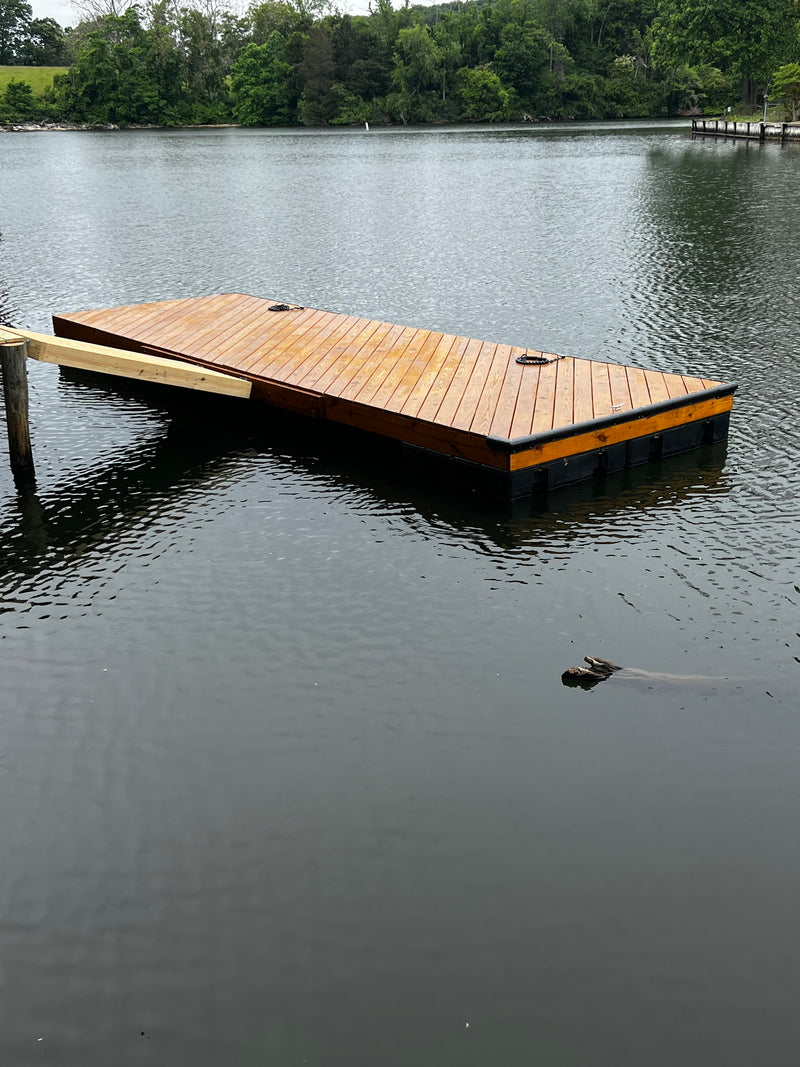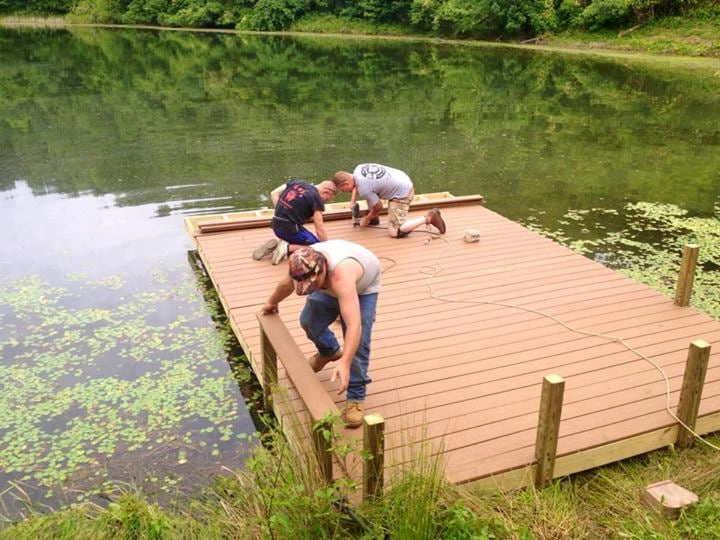Floating Docks: The Ideal Option for Versatile Water Accessibility
Floating docks existing an engaging service for a variety of water accessibility requires, offering adaptability that transcends conventional mooring alternatives. The modular nature of floating docks facilitates customization, providing to particular requirements.
Benefits of Floating Docks
Floating docks deal many advantages that boost water gain access to for various applications. Their ability to rise and drop with altering water degrees makes them especially beneficial in environments with rising and fall tides or seasonal variants. This versatility ensures that vessels can quickly moor without concern for the water's deepness, providing a dependable system for recreational, business, and commercial uses.
Additionally, floating docks are typically created from resilient products that stand up to corrosion, making them appropriate for long-lasting usage in marine environments. Their setup is usually much less invasive than standard set docks, minimizing the ecological influence and helping with quicker release (floating dock company). This flexibility permits less complicated moving or reconfiguration according to user needs or environmental modifications
Security is one more crucial advantage; floating docks can offer stable accessibility for individuals disembarking or boarding from watercrafts and lower the threat of crashes connected with unpredictable surface areas. Moreover, they can be created to fit a variety of accessories, such as cleats and fenders, enhancing functionality. Generally, floating docks stand for an efficient solution for boosting water gain access to throughout diverse industries while promoting safety and security and ecological sustainability.

Kinds of Floating Docks
Different sorts of floating docks provide to different needs and settings, each designed with details features to maximize functionality. The most usual types consist of modular docks, which consist of interlacing sections that enable easy modification and expansion. These docks are suitable for entertainment use, as they can be customized to fit different boat sizes and water problems.
Another preferred alternative is the stationary floating dock, which stays secured in area but floats with altering water degrees. floating dock company. This kind is specifically suited for areas with very little tidal fluctuations, offering stable accessibility for fishing or swimming. Additionally, there are drive-on docks, which feature a sloped layout that enables boats to quickly drive on and off, making them appropriate for individual boat and smaller sized vessels
For business applications, sturdy floating docks are readily available, created from reinforced materials to endure considerable loads and severe marine atmospheres. Finally, eco-friendly floating docks utilize lasting products and styles to decrease ecological influence, frequently integrating features like vegetation to support local wild animals. Comprehending the various sorts of floating docks ensures that customers can select the most ideal option for their certain demands.
Setup Refine Summary
A successful setup of floating docks calls for careful planning and interest to detail to make certain ideal performance and safety and security. The initial step involves assessing the website conditions, consisting of water depth, present, and potential obstacles. This analysis notifies the option of the suitable dock products and style customized to the particular setting.
Following, obtaining required authorizations is important, as numerous territories have regulations relating to building and construction on water bodies. The setup can continue as soon as approvals are secured. Begin by preparing the structure, which might involve anchoring systems or pilings tailored to the dock kind and neighborhood conditions.
Adhering to the foundation configuration, construct the dock sections according to producer specs. Make certain that all components are firmly attached and aligned to stand up to ecological stresses. Position the dock in the assigned area, guaranteeing it is level and secure.

Maintenance Tips and Best Practices
After the installation process is complete, recurring upkeep plays a crucial function in guaranteeing the longevity and capability of floating docks. Routine inspections should be performed to determine any type of signs of damages, wear, or deterioration - floating dock company. Inspect for any loosened fittings, cracks, or splitting up in the dock sections, as these can endanger structural honesty
Cleaning the dock is essential to eliminate debris, algae, and various other build-up that can influence its appearance and safety and security. Use a mild pressure clean regularly to maintain sanitation without causing damages to the surface area. Furthermore, using a protective sealer every few years can aid enhance durability and resist environmental wear.
Take note of the mooring lines and anchors, guaranteeing they are secure and complimentary from rust. Change any degraded parts promptly to prevent threats. Seasonal changes may additionally be necessary; during severe weather, strengthening the dock or rearranging can prevent damage.
Applications for Floating Docks
Floating docks offer a multitude of applications, catering to both entertainment and commercial requirements. In entertainment setups, they provide seamless access to rivers for tasks such as boating, angling, and swimming. Their flexible nature allows for installation in varying water levels, guaranteeing stable and risk-free gain access to no matter of tidal changes.
Readily, floating docks are vital for marinas and beachfront businesses. They help with the docking of vessels, allowing effective loading and unloading of goods. Their modular design permits easy expansion or reconfiguration to accommodate transforming organization needs, making them excellent for watercraft services, excursion operations, or fishing charters.
Additionally, floating docks are used in environmental applications such as useful link aquatic research and environment restoration. They can work as systems for clinical research studies, keeping an eye on water high quality, or conducting wild animals studies without disturbing sensitive communities.
In industrial contexts, floating docks are employed in building and construction jobs, offering access to hard-to-reach locations for devices and workers. Their versatility, durability, and marginal effect on the environment make them an optimum option click over here for a variety of applications, boosting both functionality and access in different water-based atmospheres.
Final Thought
In conclusion, floating docks represent an optimal option for varied water gain access to requires, owing to their adaptability, sturdiness, and modular layout. Floating docks offer as a valuable asset for leisure, industrial, and ecological jobs, making certain reliable access to waterways and advertising lasting techniques in marine settings.
Floating docks existing a compelling option for a selection of water accessibility requires, supplying versatility that goes beyond traditional mooring alternatives.Floating docks deal countless benefits that boost water gain access to for different applications. Generally, floating docks represent a reliable option for improving water access across varied sectors while promoting safety and security and environmental sustainability.
Another prominent option is the stationary floating dock, which stays secured in place however floats with changing water degrees.In link verdict, floating docks stand for an ideal service for diverse water accessibility requires, owing to their versatility, sturdiness, and modular design.